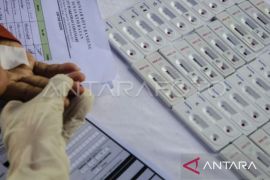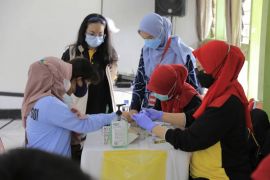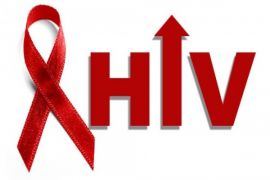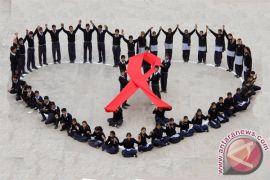"Early detection of HIV is more important. Age can be longer, quality of life will also be better because you won't have opportunistic infections, and you won't develop AIDS," he explained during an online discussion here on Thursday.
HIV is a virus that damages the immune system by infecting and destroying CD4 cells, Sundaru said.
Some of the common symptoms of an HIV infection are prolonged fever, muscle aches, sore throat, rashes, fatigue, drastic and continuous weight loss, appearance of white spots on the tongue, and prolonged diarrhea.
According to Sundaru, there are still many people who do not have the courage to get their blood tested for an HIV infection. In fact, early detection of HIV can prevent its transmission to other people.
"If you know from the beginning, it will be better. Sometimes it takes us six-seven years to see the symptoms appear. If detected early, hopefully, the disease will not cause death. Sufferers are also expected to be able to have families and have children," he said.
"Therefore, we need to control it," he added.
Women who are planning to get pregnant should take an HIV blood test so that the possibility of infection transmission to the baby can be prevented, he said.
HIV transmission can occur through blood transfusions, sperm fluid, vaginal fluid, and breast milk.
In addition, sharing of needles and unprotected sex can also increase the risk of HIV.
"Blood transfusions also have a very large transmission potential of up to 90 percent. Transmission can also be caused by unsafe sexual intercourse, homosexuality, and needles. Health workers are at risk of infection with a transmission potential of 1:1,000," he said.
"Transmission from mother to child is also high. Therefore, it is necessary to carry out a preliminary examination. For pregnant women who are already infected with HIV, they are advised to do a cesarean section," he added.
Data from the Ministry of Health has pegged the number of HIV cases in Indonesia in 2021 at 36,902. This figure has declined compared to 48,300 in 2017, with the average age of patients ranging from 25–49 years.
Related news: Religious figures, community network crucial to prevent HIV: Ministry
Related news: Govt highlights improved HIV screening, less patient treatment numbers
Translator: Katriana
Editor: Rahmad Nasution
Copyright © ANTARA 2022










